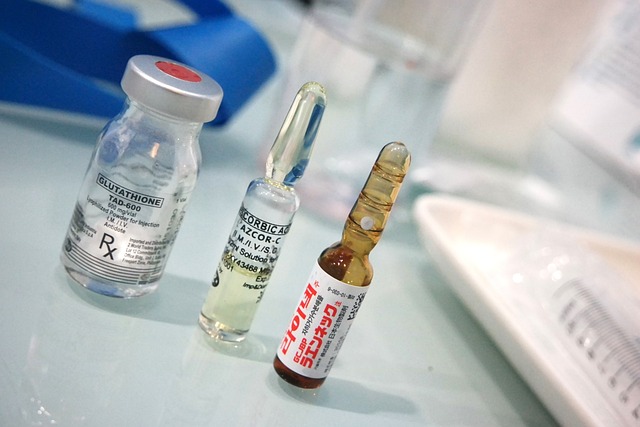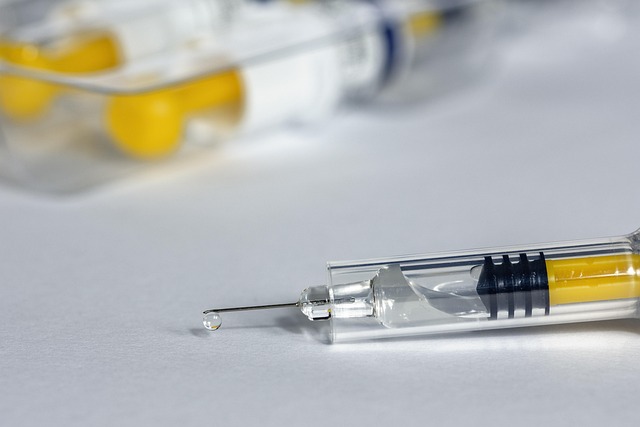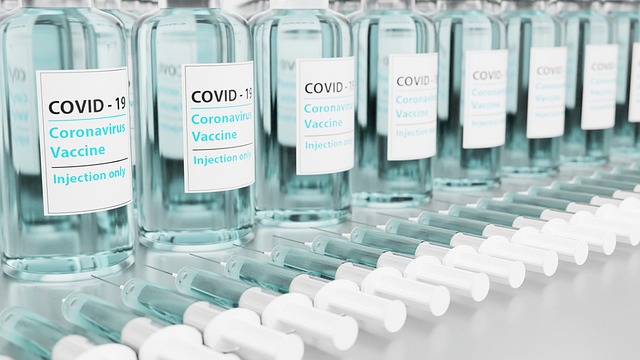Patient adherence is key to successful treatment with medications like semaglutide, especially when delivered via injections. High adherence rates result from effective communication, education, and patient empowerment by healthcare providers. The semaglutide injectable form offers a once-weekly injection schedule, simplifying routines and showing promising results in diabetes management. While challenges exist due to regular injections, personalized medicine approaches, factoring in patient preferences, can enhance adherence. Future advancements like user-friendly devices or oral formulations aim to revolutionize patient care through improved adherence and health outcomes.
Patient adherence to injection regimens is a critical aspect of effective medical treatment, especially in managing chronic conditions like diabetes. This article explores the multifaceted topic of patient adherence and response to injections, focusing on novel approaches such as the semaglutide injectable form. We discuss benefits and challenges, patient preferences, healthcare provider strategies, side effect management, and future directions driven by personalized medicine and enhanced delivery methods.
Understanding Patient Adherence: The Foundation of Effective Treatment

Patient adherence is a cornerstone in ensuring the success of any treatment regimen, especially for medications delivered via injections like the semaglutide injectable form. It refers to the degree to which patients follow their healthcare provider’s recommendations regarding medication use and other aspects of their care. High adherence rates mean that individuals are taking their medications as prescribed, attending follow-up appointments, and adhering to any lifestyle changes recommended by their healthcare team. This proactive engagement is crucial for managing chronic conditions effectively and improving treatment outcomes.
Effective communication, education, and patient empowerment play pivotal roles in enhancing adherence. Healthcare providers should invest time in explaining the importance of treatments, addressing patient concerns, and providing clear instructions. Tailoring these interactions to each individual’s needs and preferences can significantly impact their willingness to adhere. For instance, when discussing semaglutide injections, patients should understand the benefits, potential side effects, and practical aspects of self-administration, empowering them to actively participate in their care journey.
Semaglutide Injectable Form: A Novel Approach to Diabetes Management

The semaglutide injectable form represents a significant advancement in diabetes management, offering patients an innovative and potentially game-changing treatment option. This novel approach involves administering semaglutide, a glucagon-like peptide-1 (GLP-1) receptor agonist, via injection. Unlike traditional oral medications, the injectable form provides direct and sustained delivery of the drug into the bloodstream, leading to improved glycemic control.
This method allows for a once-weekly injection, simplifying medication routines for patients. The convenience and effectiveness of semaglutide injections have shown promising results in clinical trials, making it a compelling alternative for individuals with type 2 diabetes who may struggle with adherence to oral regimens. By embracing this novel semaglutide injectable form, healthcare providers can enhance patient adherence and improve overall diabetes management.
Exploring the Benefits and Challenges of Injection Therapy

Injection therapy offers a range of benefits for patients, especially those managing chronic conditions. For instance, semaglutide, in its injectable form, has shown remarkable effectiveness in treating type 2 diabetes and obesity. It provides a convenient alternative to oral medications, offering better blood sugar control and weight loss over traditional treatments.
However, the therapy also presents challenges. Patient adherence can be an issue due to the need for regular injections, which may cause anxiety or discomfort. Additionally, ensuring proper administration techniques is crucial to avoid adverse reactions and maximize therapeutic benefits. Effective patient education and support systems are essential to enhancing adherence and improving overall treatment outcomes.
Patient Preferences and Barriers to Adhering to Injection Regimes

Patient preferences and barriers play a significant role in determining adherence to injection regimes, including those involving semaglutide, an innovative injectable form used in diabetes management. Individual factors such as fear of needles, previous adverse experiences with injections, or simply a preference for oral medications can heavily influence a patient’s willingness to adhere to prescribed treatment. Understanding these preferences is crucial for healthcare providers to tailor medication regimens and offer alternatives that address specific concerns.
For instance, some patients might find the daily injection requirement of semaglutide challenging due to lifestyle or personal habits. Others may be deterred by the perceived inconvenience or potential side effects associated with the treatment. Addressing these barriers through patient education, providing support mechanisms, and offering flexible dosing options can enhance adherence rates. Effective communication between healthcare professionals and patients is key to identifying and overcoming these preferences and barriers, ultimately improving treatment outcomes.
Strategies to Improve Patient Compliance: Healthcare Provider's Role

Improving patient compliance with injections, such as those involving the semaglutide injectable form, is a collaborative effort between patients and healthcare providers. Healthcare providers play a pivotal role in enhancing adherence by educating patients about the importance of their treatment, addressing any concerns or misconceptions they may have. They should also ensure that the injection process is as comfortable and convenient as possible, reducing barriers to compliance.
Providers can encourage patient compliance through regular follow-ups, setting reminders for upcoming injections, and providing clear instructions on proper administration techniques. Offering resources like visual aids or written materials can further assist patients in understanding their treatment regimen. By fostering open communication and building trust, healthcare providers can empower patients to actively participate in managing their health effectively.
Monitoring and Addressing Side Effects for Better Patient Response

Monitoring and managing side effects associated with semaglutide injections is a critical aspect of improving patient adherence and satisfaction. The injectable form of semaglutide, often used for diabetes management, can lead to various adverse reactions, ranging from mild to moderate in severity. Regular follow-ups and open communication between healthcare providers and patients are essential to address these effects promptly. By doing so, healthcare professionals can ensure that any concerns or discomfort experienced by the patient are acknowledged and effectively managed.
Educating patients about potential side effects, such as nausea, vomiting, or injection site reactions, empowers them to recognize and report any unusual symptoms. This proactive approach enables healthcare providers to make necessary adjustments to treatment plans, including dose modifications or alternative delivery methods if needed. Effective monitoring and management of side effects not only enhance patient comfort but also foster trust and adherence to the prescribed semaglutide regimen.
Future Directions: Personalized Medicine and Enhanced Delivery Methods

The future of patient adherence and response to injections lies in the realm of personalized medicine, where treatments are tailored to individual needs. By understanding specific patient characteristics, healthcare providers can optimize injection regimens. For instance, exploring patient preferences for delivery methods could enhance adherence rates. The semaglutide injectable form offers a promising example; its once-weekly administration reduces treatment burden compared to daily injections, potentially improving patient satisfaction and compliance.
Furthermore, technological advancements in drug delivery systems are essential. Developing user-friendly, disposable injection devices or even oral formulations for certain medications could make the process more convenient and acceptable. Personalized medicine, combined with innovative delivery methods, has the potential to revolutionize patient care, ensuring better adherence and improved health outcomes.
